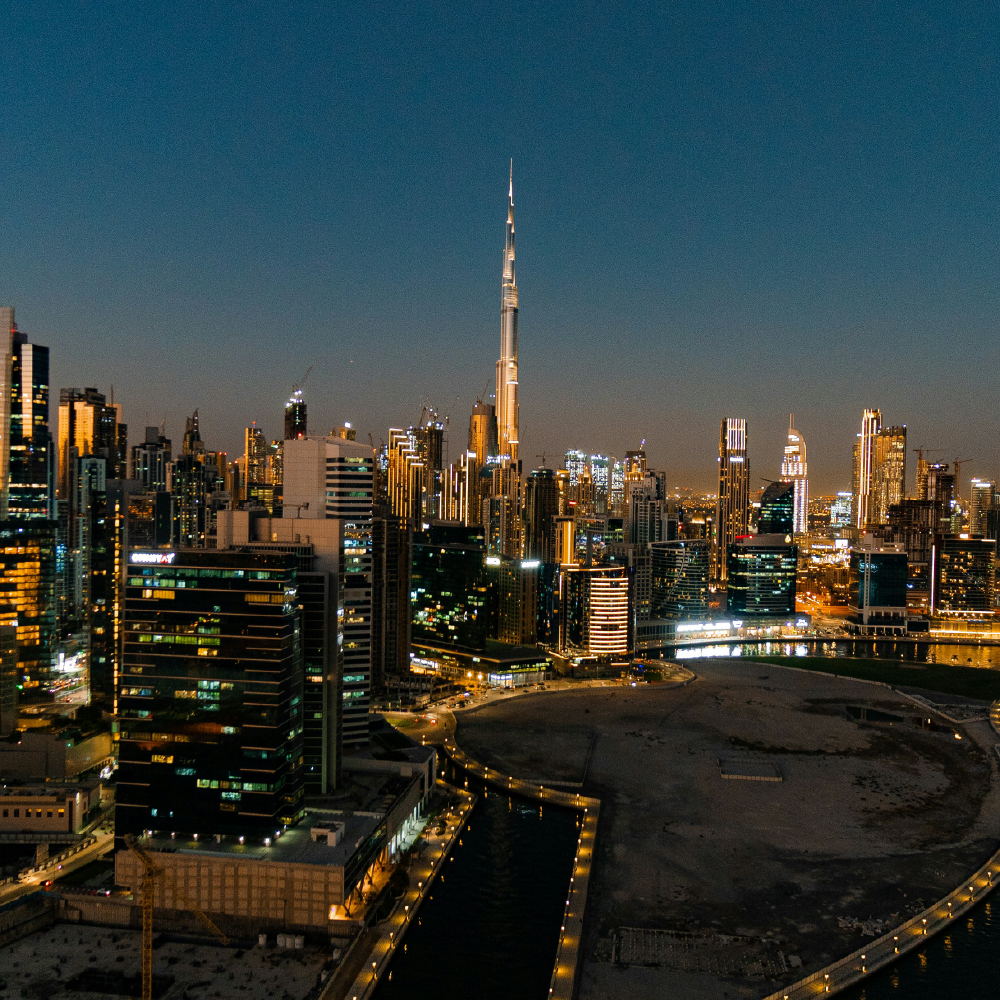
Dubai, a city known for its audacious skyline, luxurious developments, and boundless ambition, has long been at the forefront of global real estate innovation. As the Emirate looks to the future, the trajectory of real estate development in Dubai is poised to reach new heights, driven by a combination of visionary leadership, technological advancement, and evolving market dynamics. In this article, we explore the unfolding landscape of real estate development in Dubai, envisioning the trends, challenges, and opportunities that lie ahead.
A Visionary Blueprint: Dubai 2040 Urban Master Plan
At the heart of Dubai’s future real estate development is the Dubai 2040 Urban Master Plan, a visionary blueprint that outlines the city’s transformation into a sustainable and livable metropolis. Unveiled in 2020, the master plan charts a course for Dubai’s urban evolution over the next two decades, emphasizing sustainability, innovation, and community-centric design.
Central to the Dubai 2040 vision is the concept of “cities within a city,” which aims to create vibrant urban centers that offer residents a high quality of life, diverse amenities, and seamless connectivity.
Moreover, the Dubai 2040 plan prioritizes environmental sustainability, with initiatives aimed at reducing carbon emissions, conserving natural resources, and enhancing resilience to climate change.
Tech-Driven Innovation: The Rise of Smart Cities
As Dubai looks to the future, technology will play an increasingly prominent role in shaping the city’s real estate landscape. The rise of smart cities, enabled by advances in artificial intelligence, the Internet of Things (IoT), and data analytics, promises to revolutionize urban living, enhancing efficiency, convenience, and sustainability.
Dubai’s commitment to innovation is evident in initiatives such as the Dubai Smart City Accelerator program, which aims to incubate and scale startups focused on smart city solutions. From intelligent infrastructure and energy management systems to digital platforms for citizen engagement, Dubai is harnessing the power of technology to create cities that are smarter, safer, and more resilient.
One of the critical components of Dubai’s smart city vision is the integration of autonomous transportation systems, such as self-driving cars and drones, which promise to revolutionize mobility and urban logistics.
Sustainable Development: A Paradigm Shift in Real Estate
In the wake of global environmental challenges, sustainability has emerged as a defining principle in real estate development worldwide, and Dubai is no exception. As the city looks to the future, sustainability will be a guiding force in shaping the built environment, driving a paradigm shift in real estate practices and standards.
Dubai’s commitment to sustainable development is evident in initiatives such as the Dubai Sustainable City, a pioneering eco-friendly community that integrates renewable energy, water conservation, and waste management technologies. With features such as solar panels, green roofs, and electric vehicle charging stations, the Sustainable City embodies Dubai’s vision for a greener, more resilient future.
Moreover, Dubai’s real estate developers are increasingly embracing green building certifications, such as LEED (Leadership in Energy and Environmental Design) and BREEAM (Building Research Establishment Environmental Assessment Method), which emphasize environmental performance, energy efficiency, and occupant health and well-being. By prioritizing sustainability, Dubai is not only mitigating environmental impacts but also future-proofing its real estate investments against regulatory changes and market demands.
Challenges and Opportunities on the Horizon
Economic uncertainties, geopolitical risks, and market volatility pose challenges to investment and financing, requiring developers to adopt agile strategies and risk mitigation measures.
Moreover, as Dubai continues to urbanize and densify, issues such as affordable housing, urban sprawl, and social inclusion become increasingly important. Addressing these challenges will require innovative solutions, collaborative partnerships, and a holistic approach to urban planning and development.
However, amid these challenges lie abundant opportunities for growth, innovation, and impact. Dubai’s strategic location, favorable business environment, and commitment to excellence position it as a global hub for real estate investment, attracting capital, talent, and expertise from around the world.
The pandemic has accelerated trends such as remote work, e-commerce, and digitization, which have profound implications for real estate development. By embracing these trends and leveraging technology, Dubai can emerge more robust and more resilient, shaping the future of urban living in the post-pandemic world.
Shaping the Future of Urban Living
In conclusion, visionary leadership, technological innovation, and sustainability characterize the future of real estate development in Dubai. As the city looks to the horizon, it is poised to redefine the urban landscape, creating vibrant, resilient communities that thrive in the face of global challenges.
By embracing the principles of smart cities, sustainability, and innovation, Dubai is charting a course for a future that is not only prosperous and inclusive but also environmentally sustainable and technologically advanced. As the city continues its journey of transformation, it serves as a beacon of inspiration for cities around the world, showing that with vision, determination, and collaboration, the future of urban living is limited only by our imagination.